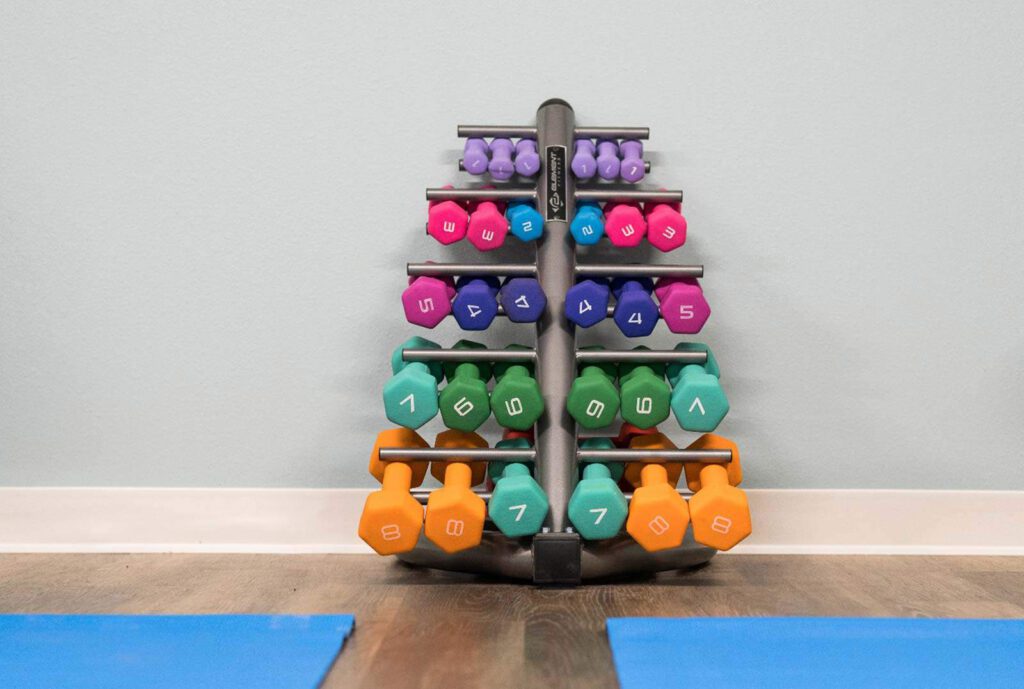Posted in: Health
As this year comes to an end, many people want to start the new year off with exercise. The decision to become physically active can be one of the best things you can do for your health. Exercise and physical activity are not only great for your mental and physical health, but they can help keep you independent as you age.
Please note: Prior to any exercise, please consult your physician for personalized medical advice.
How Much Activity Do Older Adults Need?
According to the Physical Activity Guidelines for Americans you should do at least 150 minutes (2 ½ hours) a week of moderate-intensity aerobic exercise, like brisk walking or fast dancing. Being active at least 3 days a week is best but doing anything is better than doing nothing at all. You should also do muscle-strengthening activities, like lifting weights or doing sit-ups, at least 2 days a week. The Physical Activity Guidelines also recommend that as part of your weekly physical activity you combine multiple components of exercises. For example, try balance training as well as aerobic and muscle-strengthening activities. If you prefer vigorous-intensity aerobic activity (like running), aim for at least 75 minutes a week.
How Older Adults Can Get Started with Exercise
Exercise and physical activity are great for your mental and physical health and help keep you independent as you age. Here are a few things you may want to keep in mind when beginning to exercise.
Start Slowly When Beginning Exercise
The key to being successful and safe when beginning a physical activity routine is to build slowly from your current fitness level. Over-exercising can cause injury, which may lead to quitting. A steady rate of progress is the best approach.
To play it safe and reduce your risk of injury:
- Begin your exercise program slowly with low-intensity exercises.
- Warm up before exercising and cool down afterward.
- Pay attention to your surroundings when exercising outdoors.
- Drink water before, during, and after your workout session, even if you don’t feel thirsty.
- Wear appropriate fitness clothes and shoes for your activity.
- If you have specific health conditions, discuss your exercise and physical activity plan with your health care provider.
Make notes about how these test exercises feel. If the exercises were hard, do what’s comfortable and slowly build up. If they were easy, you know your level of fitness is higher. You can be more ambitious and challenge yourself.
Three Questions to Ask Your Doctor About Exercise
If you would like to start exercising, talk to your doctor about the exercises and physical activities that are best for you. During your appointment, you can ask:
- Are there any exercises or activities I should avoid? Your doctor can make recommendations based on your health history, keeping in mind any recent surgeries or ongoing health conditions such as arthritis, diabetes, or heart disease. This would be a great time to check with your doctor about any unexplained symptoms you’ve been experiencing, such as chest pain or pressure, joint pain, dizziness, or shortness of breath. Your doctor may recommend postponing exercise until the problem is diagnosed and treated.
- Is my preventive care up to date? Your doctor can tell you if there are any tests you might need. For example, women over age 65 should be checked regularly for osteoporosis.
- How does my health condition affect my ability to exercise? Some health conditions can affect your exercise routine. For example, people with arthritis may need to avoid some types of activity, especially when joints are swollen or inflamed. Those with diabetes may need to adjust their daily schedule, meal plan, or medications when planning their activities. Your doctor can talk to you about any adjustments you need to make to ensure that you get the most out of your new exercise routine.
If you or your loved one is looking for a community offering Independent Living, Assisted Living, or Memory Care in Port Orange, Florida call us at (843) 305-7377 to get more details on how a senior living community like ours might just be a perfect fit.
Source: National Institute on Aging






for
special events
and offers